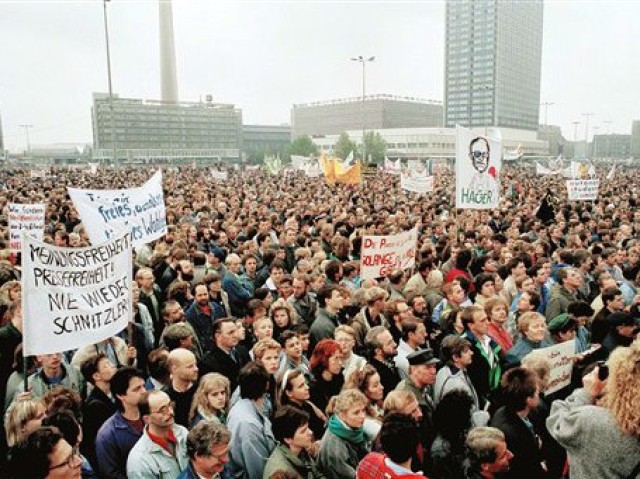A demonstration is an action by a mass group or collection of groups of people in favor of a political or other cause or people partaking in a protest against a cause of concern. It often consists of walking in a mass march formation and either beginning with or meeting at a designated endpoint, or rally, to hear speakers. It is different from mass meeting.
Actions such as blockades and sit-ins may also be referred to as demonstrations. Demonstrations can be nonviolent or violent , or can begin as nonviolent and turn violent depending on the circumstances. Sometimes riot police or other forms of law enforcement become involved. In some cases this may be in order to try to prevent the protest from taking place at all. In other cases, it may be to prevent clashes between rival groups, or to prevent a demonstration from spreading and turning into a riot.
Demonstrations can promote a viewpoint (either positive or negative) regarding a public issue, especially relating to a perceived grievance or social injustice. A demonstration is usually considered more successful if more people participate. Research shows that anti-government demonstrations occur more frequently in affluent countries than in poor ones.
Demonstrations are sometimes spontaneous gatherings, but are also utilized as a tactical choice by movements. They often form part of a larger campaign of nonviolent resistance, often also called civil resistance. Demonstrations are generally staged in public, but private demonstrations are certainly possible, especially if the demonstrators wish to influence the opinions of a small or very specific group of people. Demonstrations are usually physical gatherings, but virtual or online demonstrations are certainly possible.

